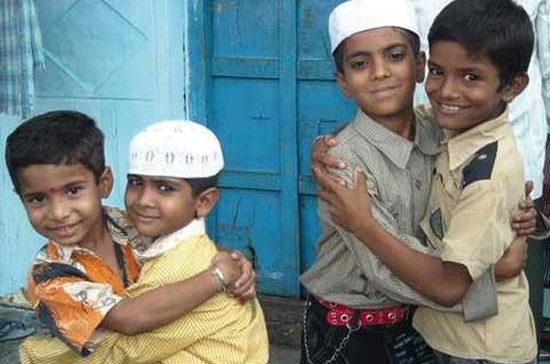In the India of growing intolerance, religious conflicts and killings, a recent study shows that children are free from prejudices against followers of other religions
A study published recently in the journal Child Development reveals that children in India showed amazing tolerance for one another’s religious beliefs and customs.
“Children recognize that the norms of one religion—such as the Hindu prohibition against eating beef or the Muslim custom to fast during Ramadan—don’t apply to members of another religion,” said Mahesh Srinivasan, the study’s lead author and an assistant professor of psychology at UC Berkeley, it was reported.
“Even in a region with a long history of high religious tension, we see impressive levels of religious tolerance among children,” study co-author Audun Dahl, assistant professor of psychology at UC Santa Cruz was quoted saying.
Dahl and Srinivasan and Elizabeth Kaplan (the later from Syracuse University) wanted to find out if children extended their thinking about their own religious norms to other groups. They found out that both Hindu and Muslim children felt that the norms of a religion applied only to followers of that religion.
Interestingly, it becomes all the more relevant to learn that the study was conducted in Gujarat, a state with a bitter and horrific history of Hindu-Muslim conflict and violence. The questions were placed before 100 children aged 9 to 15 years. Also of particular relevance is the fact that 95 per cent of the children regardless of religion felt it is not right to hit people. They felt this was wrong even if the hitting was permitted by religious authorities or a god.
Dahl was quoted saying “In the Hindu religion, the cow is a holy animal, so you could expect Hindu children to say it is wrong for anyone to kill and eat cows. But that’s not what we found. Most Hindu children thought Muslims could eat beef, and should follow Muslim rather than Hindu norms.”
Cover photograph: courtesy Milli Gazette

